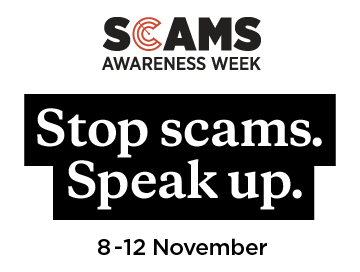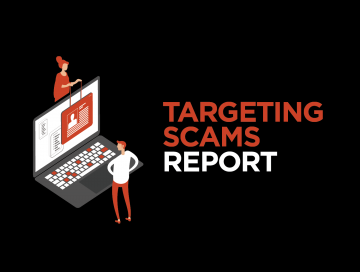81 results, showing 1 to 10
The National Anti-Scam Centre’s latest Targeting Scams Report found scam losses reported to key organisations fell by 25.9 per cent to $2 billion in 2024, showing the efforts by government, industry, law enforcement and community organisations are reducing the financial impact of scams on Australians.

Scammers are targeting online shoppers during the festive season, especially with Christmas shopping and Boxing Day sales. Criminals create fake websites to look like well-known brands.

Criminals are calling people and pretending to be from a trusted organisation like a bank, IT company or phone company.
Scammers pretending to be real businesses are sending fake invoices to customers, with scam bank account details. These may seem to come from a business you expect an invoice from - but scammers have stolen their identity to steal your money.
The National-Anti Scam Centre is warning HSBC customers to watch out for scam texts that appear to be from their bank.

The financial and emotional devastation caused by scams every year in Australia can be reduced if government, consumer groups and the private sector work together.

Scams Awareness Week 2021 takes place 8-12 November. This Scams Awareness Week we’re encouraging everyone to start a conversation about scams.

Since August 2021, many Australians have been getting scam text messages about tracking a delivery, missed calls or voicemails, along with a link to download some software. If you receive one of these messages, do not click or tap on the link.
Australians reported a record $211 million in losses to scams so far this year, an 89 per cent increase compared to the same period last year, according to new data from Scamwatch.

Last year scammers stole close to $34 million collectively from people who identified as culturally and linguistically diverse (CALD), people with disability, and Indigenous Australians.



